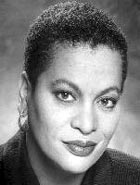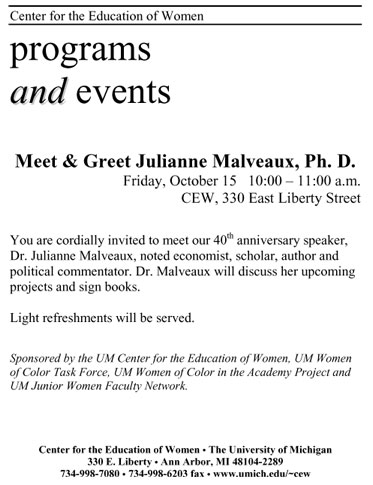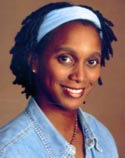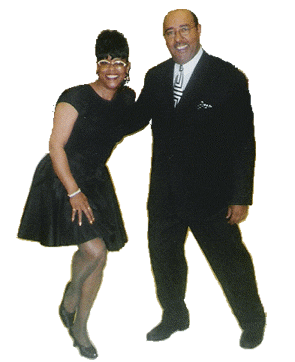
October 8, 2004 Newsletter
|
|
|||||
|
|||||
Table of Contents
---UNITED WAY CAMPAIGN
---Dr. Julianne Malveaux
Campus Visit
---Announcements of Events
---Commentary
---Scholarships
| UNITED WAY CAMPAIGN | ||
|
The United Way supports a remarkable array of activities that reach, enrich and improve our community in many significant ways. United Way volunteer panels assess community needs and evaluate the ability of agencies to provide meaningful assistance. The choice is yours. You can support the priorities established through the allocation process of United Way, or You can direct your gift to the select agencies listed on the pledge card, or you can choose any other 501(c)(3) organization by writing the name and address at the bottom of the card or the agency code. Listed below are some Washtenaw County agencies that you might want to direct your gift to. For the complete list click
LIST
OF AGENCIES |
||
|
|
|
 Peace
Neighborhood Center Peace
Neighborhood Center1111 North Maple Ann Arbor, Michigan 48103 AGENCY CODE 1347 It is the mission of Peace Neighborhood Center to provide programs for children, families and individuals who are impacted by social and economic problems. Peace Neighborhood Center helps people discover options, enhance skills, develop positive attitudes, and make choices that lead to self-sufficiency. |
|
THERE ARE MANY OTHER AGENCIES WORTHY OF YOUR
SUPPORT SERVING WASHTENAW COUNTY.
These are just three I am highlighting this week |
||
|
Also
CEW Presents |

Dr. Julianne Malveaux internationally renowned economist, author and scholar, will be the keynote speaker at the Center for the Education of Women's 40th Anniversary Celebration Friday, October 15 from
2- 4:30p.m. In the The title of her talk is 'Making Room for Sadie: Race, Gender and Access in Higher Education and Society.' Dr. Malveaux's research is focused on the labor market, public policy, and the impact of policy on women and people of color. Recognized for her provocative, progressive and insightful observations as both a writer and columnist, her syndicated column appears regularly in more than 20 newspapers and educational publications. CEW also welcomes Regent Olivia Maynard, who will give the opening remarks. Following the talk, CEW's celebration of 40 years of research, advocacy and service will continue. Along with birthday cake, the celebration will feature toasts from CEW friends and alums, and music by jazz saxophonist and CEW scholar Julieta Guzman. Please join us for the festivities. This event is free and open to the public. |
 Prison
spending in battleground states increased five times as fast as higher
education spending; Nearly 2 million disenfranchised in swing states
due to felony records; Prisons growth in Republican-leaning states double
that in Democrat-leaning states Prison
spending in battleground states increased five times as fast as higher
education spending; Nearly 2 million disenfranchised in swing states
due to felony records; Prisons growth in Republican-leaning states double
that in Democrat-leaning statesWashington, DC: A new report released today examining prison growth in the 17 key battleground states found that prison spending grew five times as fast as higher education spending between 1985 and 2002. Nearly two million adults in the 17 key electoral states are ineligible to vote due to felony disenfranchisement laws in those states. Both trends disproportionately affect the African American population in those 17 states, according to the report released today by the nonprofit Justice Policy Institute. “Prisons are growing, education is suffering and the African American community hit hardest is increasingly shut out of the debate,” states Vincent Schiraldi, Executive Director of the Institute and report co-author. “As presidential candidates mine these states for votes, voters need to hear about how they intend to create a more balanced approach to crime that doesn’t rob education to fund prisons.”
|
Outside the swing states, states leaning Republican saw their incarceration rates increase at nearly twice the rate of Democrat-leaning states (30.3% compared to 15.7%). Yet index crime in the Democratic-leaning states dropped at twice the rate of crime in the Republican-leaning states (37.3% vs. 16.9%). “A major misperception is that building prisons and locking
up more people makes us safer,” said the report’s author
Eric Lotke, research director at JPI. “The data show that it
is not so simple and other factors matter more.” Lotke predicted
that if the nation doesn’t curb its use of incarceration, and
invest more resources in treatment and prevention, crime will start
to go up again. |
The report noted that several
of the swing states have experimented with bipartisan, promising approaches
to curbing prison growth. Ohio officials reduced sentence lengths for
nonviolent offenses, increased sentences for violent offenses, and reformed
parole practices, leading to a 2,000 person decline in their prison
population and the closure of a prison. Michigan legislators revised
their states’ harsh mandatory sentencing laws, saving the state
an estimated $41 million last year. Washington shortened sentences for
people convicted of drug and nonviolent offenses and used the prison
savings to fund community based treatment. “Policy makers need to take decisive action, and design solutions proportional to the size of the problem. Without brakes, prison bureaucracies will continue to grow on auto-pilot,” Lotke stated. “With America’s incarceration rate the highest in the world and higher than any time in our history, it’s time for the presidential candidates to break their silence on this critical issue and talk about how to reduce crime without breaking the bank on prisons.” ### A copy of Swing States: Crime, Prisons and the Future of the Nation can be obtained at www.justicepolicy.org or by calling the Justice Policy Institute at (202) 276-1308, ext. 308. JPI is a nonprofit organization dedicating to promoting safe, fair and effective alternatives to incarceration that protect public safety and benefit communities. This report was funded through the generosity of the JEHT Foundation, the Open Society Institute – Criminal Justice Initiative, and the Public Welfare Foundation. |
Charles G. Ransom
Multicultural Studies Librarian
209
(734) 764-7522 Office Phone
(734) 764-0259 FAX




 Ballroom
Dance Class
Ballroom
Dance Class Democratic
presidential nominee Sen. John Kerry Thursday accepted the invitation
extended by
Democratic
presidential nominee Sen. John Kerry Thursday accepted the invitation
extended by